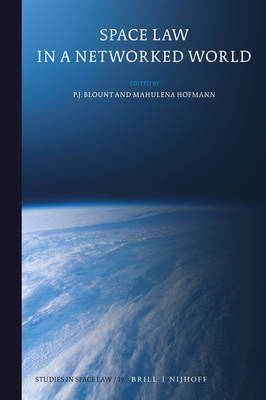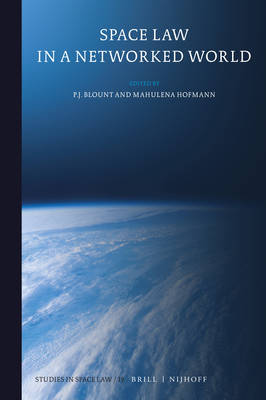
- Afhalen na 1 uur in een winkel met voorraad
- Gratis thuislevering in België vanaf € 30
- Ruim aanbod met 7 miljoen producten
- Afhalen na 1 uur in een winkel met voorraad
- Gratis thuislevering in België vanaf € 30
- Ruim aanbod met 7 miljoen producten
Zoeken
Space Law in a Networked World
€ 250,95
+ 501 punten
Omschrijving
Access to space technology has changed dramatically in the past 10 years. Traditionally, access to space capabilities required dedicated receivers and significant investment. With the advent of new information technologies that incorporate and disseminate the benefits of space directly to users, access to space technology is no longer so exclusive. As the seamless delivery of space capabilities, from navigation and position to data flows, makes it difficult to distinguish space capabilities from other information infrastructures, legal structures developed to govern space technologies are being forced into contact with a variety of other legal structures.
Legal questions abound as new markets, innovative technologies, and increased data access emerge, and the lex specialis of space accommodates these trends. This book investigates how traditional space law is developing as space technology enters the daily lives of individuals everywhere.
Legal questions abound as new markets, innovative technologies, and increased data access emerge, and the lex specialis of space accommodates these trends. This book investigates how traditional space law is developing as space technology enters the daily lives of individuals everywhere.
Specificaties
Betrokkenen
- Uitgeverij:
Inhoud
- Aantal bladzijden:
- 296
- Taal:
- Engels
- Reeks:
- Reeksnummer:
- nr. 19
Eigenschappen
- Productcode (EAN):
- 9789004527263
- Verschijningsdatum:
- 2/03/2023
- Uitvoering:
- Hardcover
- Formaat:
- Genaaid
- Afmetingen:
- 156 mm x 238 mm
- Gewicht:
- 566 g

Alleen bij Standaard Boekhandel
+ 501 punten op je klantenkaart van Standaard Boekhandel
Beoordelingen
We publiceren alleen reviews die voldoen aan de voorwaarden voor reviews. Bekijk onze voorwaarden voor reviews.







